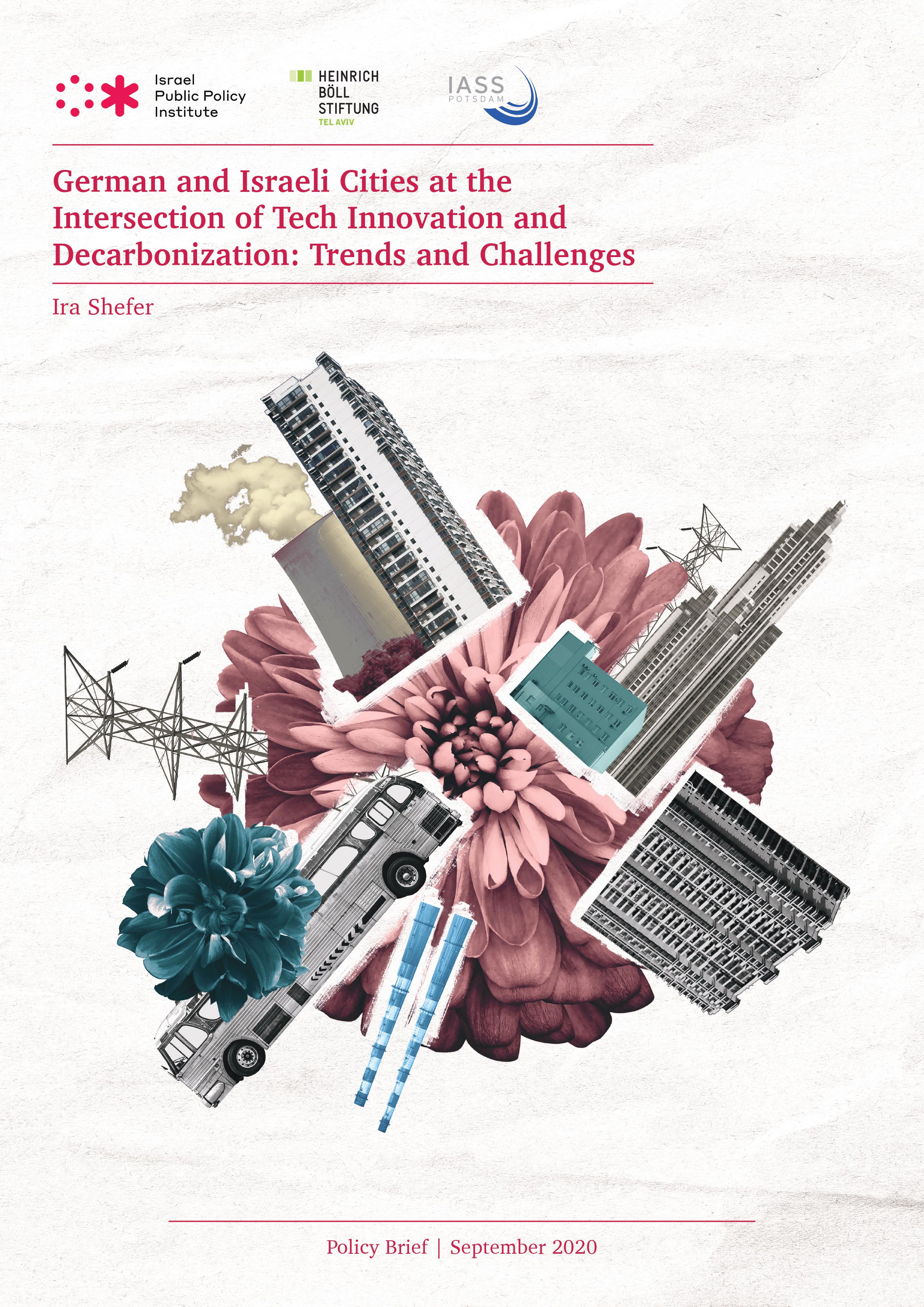German and Israeli Cities at the Intersection of Tech Innovation and Decarbonization

Share this Post
Cities as a Sink for Innovation and Decarbonization
The role of cities in shaping and driving the decarbonization process is growing, as municipalities are increasingly implementing policies and technologies that support the transition to a low-carbon economy. Cities are leading the shift to sustainable energy consumption and production, reducing emissions from urban and national transportation fleets, and adopting “smart” technologies and other innovative measures to efficiently use and manage resources. Forerunner cities deserve special attention in this regard, as they may shed light on the capabilities and limitations of cities in a given political system.
Municipalities in both Germany and Israel have launched various initiatives to support decarbonization processes in their jurisdictions, while integrating technological tools and stressing the importance of harnessing innovation, albeit different in form and scale.
This policy brief focuses on the nexus between decarbonization and tech innovation on the municipal level in Germany and Israel. It asks how decarbonization and innovation are coupled in cities in both countries, and what this nexus brings with it. To answer these questions, the following text provides a qualitative analysis of two German and two Israeli forerunner cities that are involved in efforts and practices of urban decarbonization and innovation.
This paper makes a series of recommendations addressing key challenges for decarbonization initiatives, related to innovation, smart mobility and governance structures, facing cities in both contexts:
- Cities should utilize their power to push for deeper decarbonization measures in green and sustainable building.
- Cities could benefit from a more diverse allocation of resources rather than concentrating their efforts on private e-mobility.
- A more collaborative and inclusive approach to national strategic planning, which integrates the perspectives of city officials, citizens and civil society, may enhance the urban decarbonization process.
————————————————————————————————————————————————–
The Israel Public Policy Institute (IPPI) serves as a platform for exchange of ideas, knowledge and research among policy experts, researchers, and scholars. The opinions expressed in the publications on the IPPI website are solely that of the authors and do not necessarily reflect the views of IPPI.
Download Full Publication
Policy Paper - German and Israeli Cities at the Intersection of Tech Innovation and Decarbonization: Trends and Challenges by Ira Shefer

Share this Post

Digital Turbulence: Building a democratic society in times of digital turmoil
Authors: Jan Rau & Felix M. Simon “This [the Internet] is where democracy happens now and there is…

Platform Liability Regimes Around the World
Digital platforms, namely social media platforms such as Twitter, Facebook, and TikTok, have been constructing and facilitating social…

Cross-Cultural Values defining AI Governing Principles
There is a consensus that AI needs to be organized around ethical principals and values. Like all iterations…
